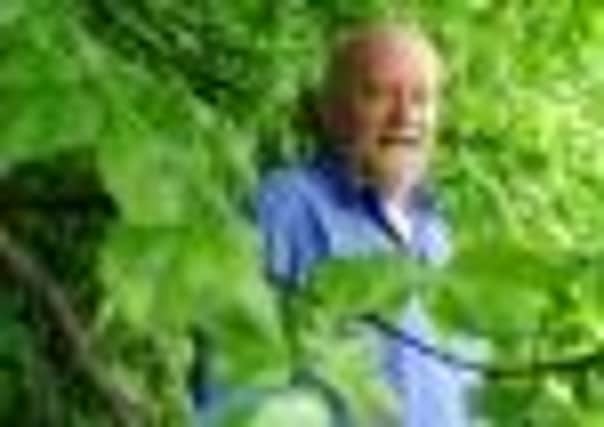Obituary: David Peat; Scottish documentary film-maker who loved to reflect the lives of ordinary people


David Peat was acknowledged as one of the most imaginative makers of film and television documentary of recent years. He had a knack of knowing who and what to film, and then focus on the very essence of his film.
This was superbly demonstrated in his series Scotland on Film, shown on BBC Scotland. The meticulous care that Peat took in researching the various subjects brought a real authority to the entire series. It took six months to properly check the facts and research about 500 films.
Advertisement
Hide AdAdvertisement
Hide AdHis documentaries for the BBC, STV and Channel 4 included The Man Who Cycled the World, Clarissa and the Countryman, The Kirsty Wark Show, Clydebuilt and The Legend of Los Tayos, in the Amazonian jungle with Bill Forsyth.
Throughout his 40-year career, Peat focused his work on reflecting the lives of ordinary people, to which he added a touch of cinematic magic. His eye for detail and ability to capture the atmosphere in one shot were masterly.
The broadcaster Kirsty Wark, who worked with Peat on her own show, commented yesterday: “David was one of the most talented, passionate and know-ledgeable director/producers. I feel privileged to have known him.”
David Peat grew up in Killearn in Stirlingshire, and after Gordonstoun he worked in the family shipping company. He had an overwhelming desire to become a cameraman and assembled a portfolio of photographs in 1970 and worked successfully as a freelance photo-grapher. That year he also shot a documentary called Clydescope, featuring a wild and vivacious young comic named Billy Connolly.
That led to Big Banana Feet with Connolly. The two toured Ireland in the middle of the Troubles, and Peat captured a very natural Connolly – with the comedian often seemingly oblivious of the cameras – and recorded him doing a magnificent imitation of the Rev Ian Paisley. Peat received many commissions from Channel 4, and from the 1980s he made documentaries which covered a wide variety of subjects. A film for the channel in 2004 looked at the problems facing the Scottish fishing industry.
Gutted was made by Peat for the Aberdeen-based Tern Television and boldly chronicled the hazards faced by small, family-run boats. Peat’s cameras caught the men who worked out at sea and captured the poignant morning when the fishing vessel Steadfast sailed into the breaker’s yard. “It was,” Peat said to camera, “one of the most extraordinary moments in my career.”
Many will fondly recall the programmes of Scotland on Film shown on BBC Scotland. They had a quaint honesty that made them utterly compelling; the social history of Scotland unfolded with an absolute, but colourful, candour.
From the Gorbals to the jute mills in Dundee to the post- mistress in the Hebrides and early footage of the Aberdeen docks, they all showed Scotland at work and play. Each film had a little gem that caught different aspects of the past – a forgotten trade, building or lifestyle. Peat reflected the humanity and charm of a city or people.
Advertisement
Hide AdAdvertisement
Hide AdHe made several documentary series for the BBC, including The Man Who Cycled the World which followed the exploits of the Perthshire cyclist Mark Beaumont. For 40 years, Peat had been active with his camera and had amassed a vast collection of photographs from all over the world. He had thousands of contact sheets, but had never processed or catalogued them.
In 2009 he was diagnosed with cancer and as he himself said: “That was the motivation. I just thought, I am not prepared to fall off my perch and have all these thousands of negatives – my eye on the world – disappear.”
Last summer many of these black-and-white photographs were seen at the Watermill Gallery in Aberfeldy and have since toured elsewhere in Scotland. They will be part of a retrospective exhibition at the Trongate in Glasgow this summer.
Peat, a man of much warmth and charm, and blessed with a vibrant personality, recently set up training courses within the BBC to pass on his skills to a younger generation.
David Martin, a lifelong friend, said yesterday: “Dave had a natural ability to move in any circle and put everyone at their ease. After school he blossomed and held literary evenings at his home. I fondly remember his bright sense of humour and his love of sailing – he annually competed in the Tobermory Race. Dave quietly helped many without making a fuss, particularly the Uphill Ski Club, which helps disabled skiers.”
Peat won many awards for his television work. They included a Bafta Scotland award for Outstanding Contribution to the Craft and a Royal Television Society award. He is survived by his wife, Patricia, and their son and daughter.
Alasdair Steven